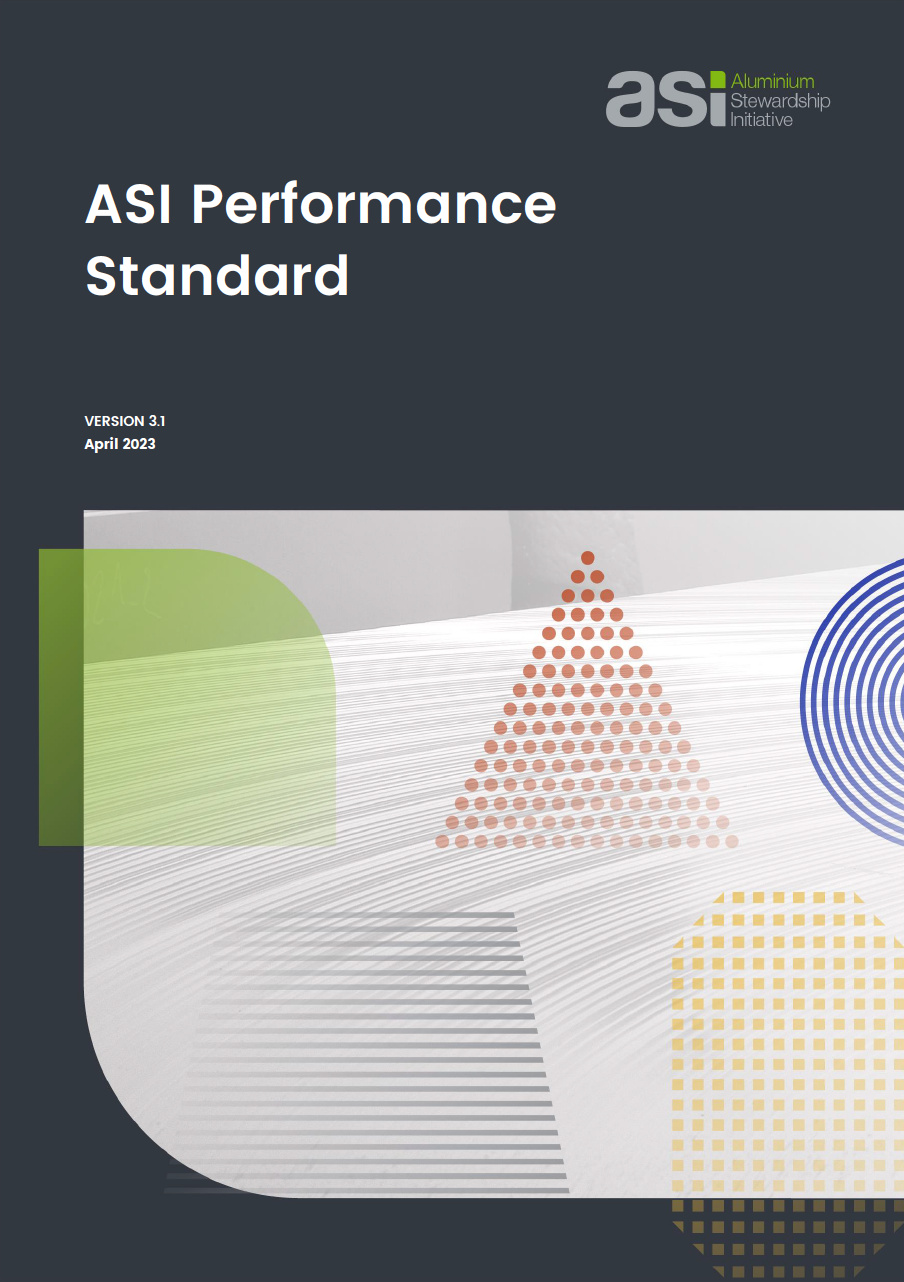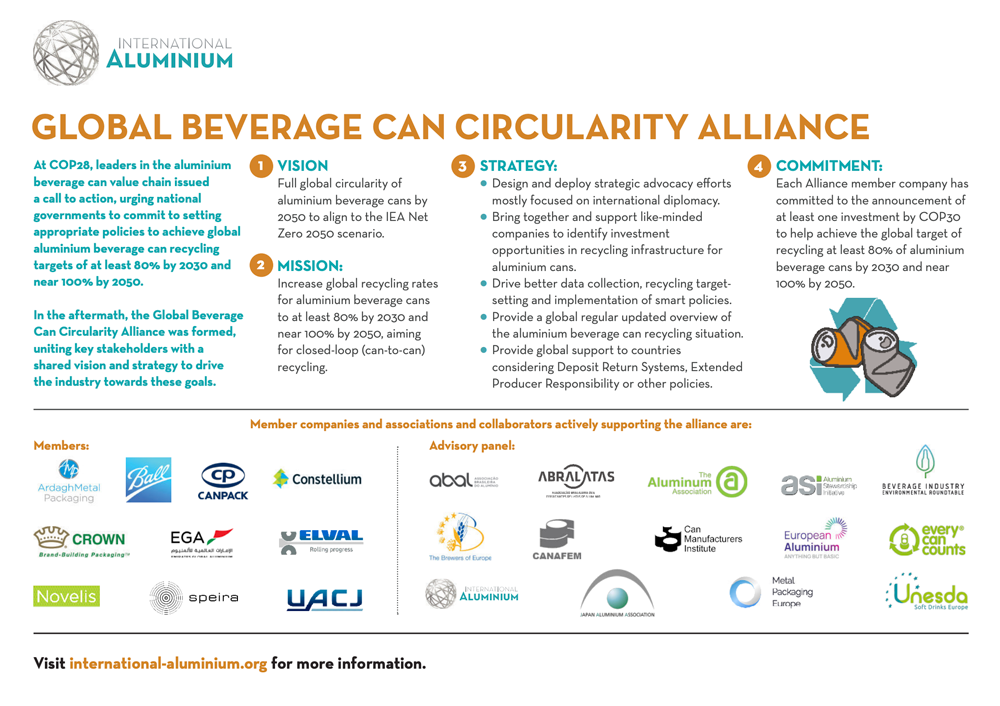Circularity Hub
Drive circularity: reduce metal losses, design out waste and pollution, protect people, regenerate natural systems.
ASI’s goal is to shift the aluminium industry – and the many sectors and communities that depend on it – towards a regenerative model that decouples growth from the consumption of limited resources. Circularity is central to this transformation, guiding efforts to design for longevity, minimise waste, and ensure that resources are kept in circulation through recovery, recycling, and responsible restoration.
ASI’s Performance Standard embeds these principles through requirements on resource efficiency, pre-consumer scrap minimisation, alloy separation, product take-back, waste reduction and re-use, water stewardship, and mine site rehabilitation. Together with the Chain of Custody Standard, which provides a mechanism to trace recycled content and support responsible sourcing, these tools set a framework for credible circularity outcomes across the aluminium value chain.
Beyond standards, ASI drives change through a wide portfolio of projects, alliances, and knowledge initiatives:
• Current projects such as the CARE project in Colombia, which supports waste picker formalisation and empowerment; and the Global Beverage Can Circularity Alliance with IAI and CMI, which prioritises recycling interventions by region. ASI also contributes to international processes including ISO/TC 323 and the EU Ecodesign Forum.
• Past projects have strengthened frameworks for responsible recycling and resource stewardship, including CEWASTE, ISO IWA 19/Sustainable Recycling Industries, building passport reviews, and material flow modelling with IAI.
• Knowledge and capacity building are advanced through concept papers, frameworks, training programmes (ISO 59000 series, ASI’s LCA course), and the Circularity Working Group, which provides a platform to discuss revision issues, outcome-based criteria, and alignment with emerging international frameworks.
• Videos and webinars share research insights, practical examples, and global perspectives. Topics include resource efficiency, reclamation potential in the built environment, responsibly sourced recycling supply chains, the role of sorting in low-carbon circularity, and opportunities emerging from ISO 59000. These recordings help bring complex topics to life and extend learning beyond the immediate ASI community.
• Engagement and storytelling through the Circularity Storymap, explainer videos, project updates, and event presentations highlight real-world applications of circularity across geographies and sectors.
Watch: How ASI promotes circularity
Circularity stories: Leading the aluminium sector towards a circular future
 Circularity is a strategic opportunity for the aluminium sector to lead in sustainability. ASI’s commitment ensures that our members are equipped to drive systemic change. The stories that follow illustrate how circularity principles are being applied worldwide, inspiring action and collaboration across the industry.
Circularity is a strategic opportunity for the aluminium sector to lead in sustainability. ASI’s commitment ensures that our members are equipped to drive systemic change. The stories that follow illustrate how circularity principles are being applied worldwide, inspiring action and collaboration across the industry.
Circularity in the ASI Performance Standard
Key elements
- Product design to enhance circular economy outcomes
- Minimisation of aluminium process scrap
- Segregation and separation of aluminium alloys and grades for recycling
- Collection and recycling of products at end of life
- Waste management and reporting – quantities of waste, impacts and application of waste mitigation hierarchy
- Good practice technologies for bauxite residue storage and re-use by alumina refiners
- Optimising processes for the recovery and recycling of carbon and refractory materials from spent pot lining (SPL) from aluminium smelters
- Maximising the recovery of Aluminium from aluminium containing wastes
- Water stewardship, including assessment, management and disclosure
- Mine site rehabilitation using best available techniques
- The ASI Chain of Custody Standard provides a mechanism to support responsible sourcing
Projects
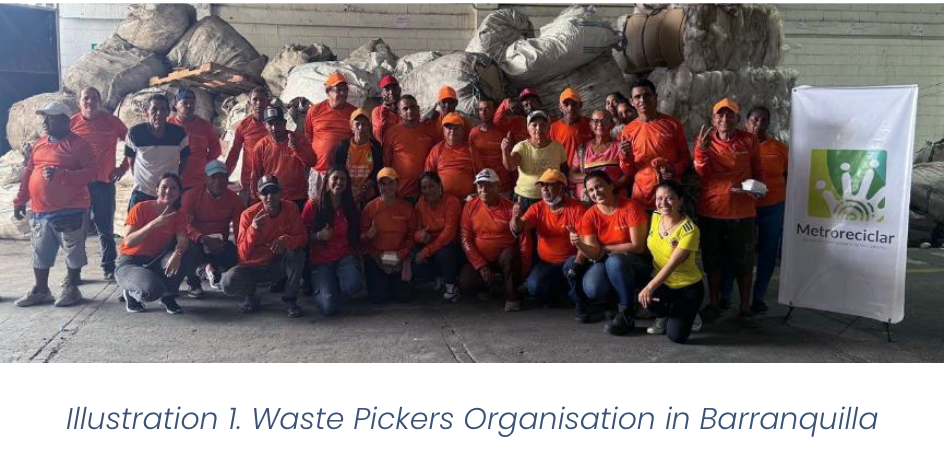 The CARE project has three main goals:
The CARE project has three main goals:
1. Stakeholder mapping and diagnostics
Conducting a comprehensive study of Colombia’s aluminium recycling value chain to identify gaps and opportunities for market formalization and traceability.
2. Training and capacity building
Developing targeted training sessions for waste pickers and recycling organizations, focusing on labour formalization, health and safety, and human rights awareness.
3. Collective action strategies
Integrating the project into existing Extended Producer Responsibility (EPR) platforms like Movimiento Re and Reciclar tiene valor to enhance collaboration, efficiency, and traceability in recycling value chains.
ASI maintains a liaison role with ISO Technical Committee 323 on Circular Economy, which is responsible for developing the ISO 59000 family of standards. These standards aim to provide global frameworks, definitions, and tools to support circular economy practices across sectors.
As part of this engagement, ASI contributes expertise gained through its Circularity Framework, the ongoing Performance and Chain of Custody Standards Revision process, and collaborative initiatives such as the CARE Project. These efforts address themes central to ISO/TC 323, including value creation, resource efficiency, waste minimisation, due diligence for secondary materials, and system-level innovation.
The liaison role creates opportunities for alignment between ASI Standards and ISO guidance, ensuring that terminology, metrics, and assurance approaches are complementary and globally relevant. It also provides a channel for ASI members’ perspectives to inform international discussions.
More information: ISO/TC 323 – Circular economy
ASI has been appointed as a Member (Type C – Organisation) of the EU Expert Group on Ecodesign for Sustainable Products and Energy Labelling, known as the Ecodesign Forum, which supports implementation of the EU’s Ecodesign for Sustainable Products Regulation (ESPR). Through this role, ASI will represent the aluminium industry and contribute its expertise in sustainability standards, circularity, and responsible sourcing to inform discussions on ecodesign requirements, Digital Product Passports, and future work plans. By engaging directly in the Forum, ASI aims to ensure that the ESPR’s outcomes are practical, impactful, and aligned with the aluminium sector’s strengths in recyclability and sustainable design, while helping members anticipate and adapt to evolving EU sustainability regulations.
Partnering with the International Aluminium Institute (IAI) to enable the use of IAI global material flow modeling as a basis for visualisation of ASI Material flows, in the context of global supply and demand.
Contributed to CEWASTE, a project funded by the European Union’s Horizon 2020 research and innovation program, through its Advisory Board. The project created, validated and launched a scheme for collection, transport and treatment facilities of key types of waste containing significant amounts of valuable and critical raw materials, such as waste electrical and electronic equipment (WEEE) and batteries.
Partnered with World Resources Forum on their Sustainable Recycling Industries. ASI participated in an ISO workshop process to develop a global framework for the sustainable management of secondary metals. IWA 19:2017 guides economic operators of secondary metals value chains in the efficient and credible implementation of improved recycling practices, in particular in emerging and developing economies.
Featured project: Collective Action for Recycling and Empowerment (CARE)
This unique initiative focuses on integrating informal waste pickers into formal recycling markets in Colombia, supporting responsible recycling practices.
The CARE project has three main goals:
1. Stakeholder mapping and diagnostics
Conducting a comprehensive study of Colombia’s aluminium recycling value chain to identify gaps and opportunities for market formalization and traceability.
2. Training and capacity building
Developing targeted training sessions for waste pickers and recycling organizations, focusing on labour formalization, health and safety, and human rights awareness.
3. Collective action strategies
Integrating the project into existing Extended Producer Responsibility (EPR) platforms like Movimiento Re and Reciclar tiene valor to enhance collaboration, efficiency, and traceability in recycling value chains.
Watch:
CARE Project overview
This video explores the CARE Project’s work to formalise aluminium recycling in Colombia, beginning with the story of waste pickers’ struggle for recognition and dignity. It highlights how inclusive systems, fair conditions, and stronger traceability can drive both social justice and circularity. Gain insights into how the project’s diagnostic studies, training activities, and pilot initiatives connect waste pickers, cooperatives, and industry partners for more responsible recycling. [12 minutes]
Watch:
CARE: What Is Due Diligence in Recycling and Why Should You Care?
In this video, One Planet, a CARE project partner, provides a clear and accessible overview of OECD-aligned due diligence, breaking down the six key steps and why they’re increasingly being adopted by responsible companies. [48 minutes]
This project is possible thanks to a grant from the ISEAL Innovations Fund, which is supported by the Swiss State Secretariat for Economic Affairs SECO and UK International Development from the UK government.
Documents and reports
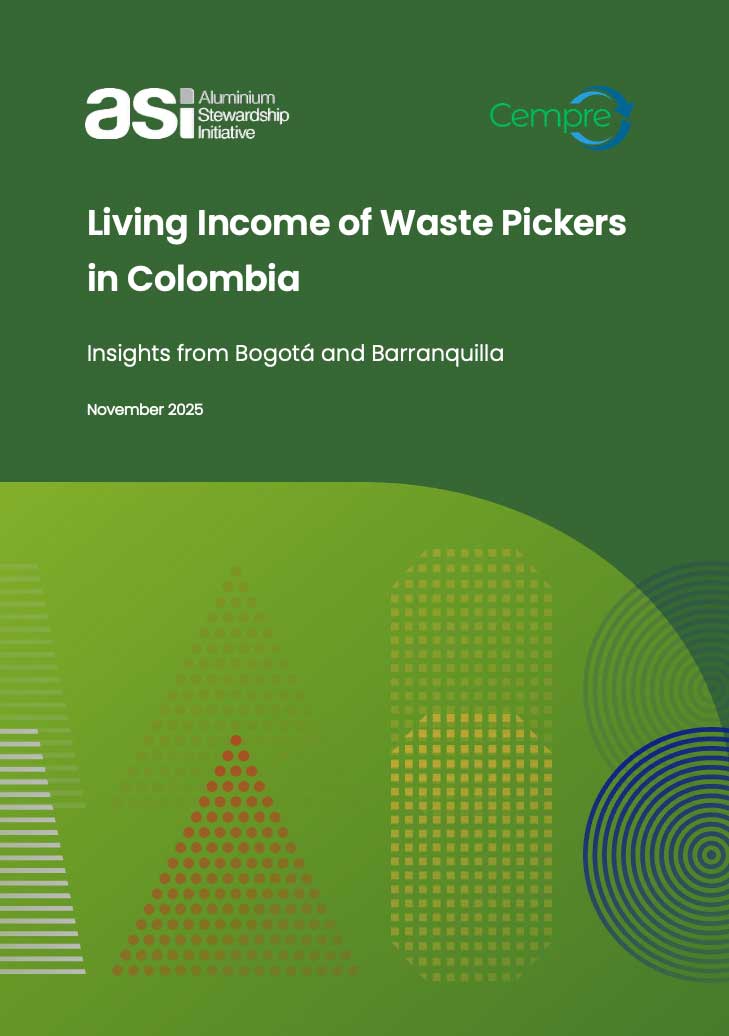
DOWNLOAD
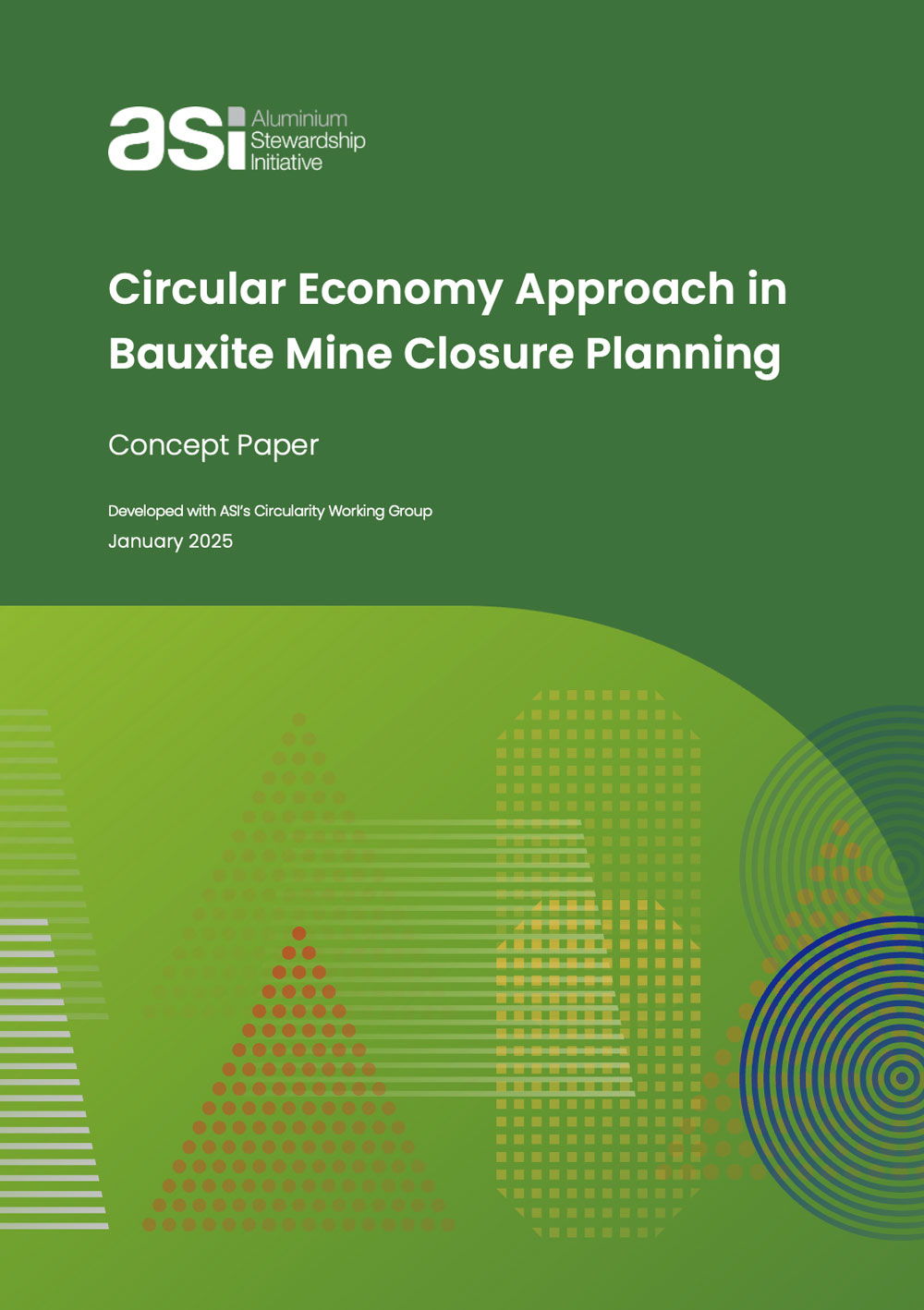
DOWNLOAD
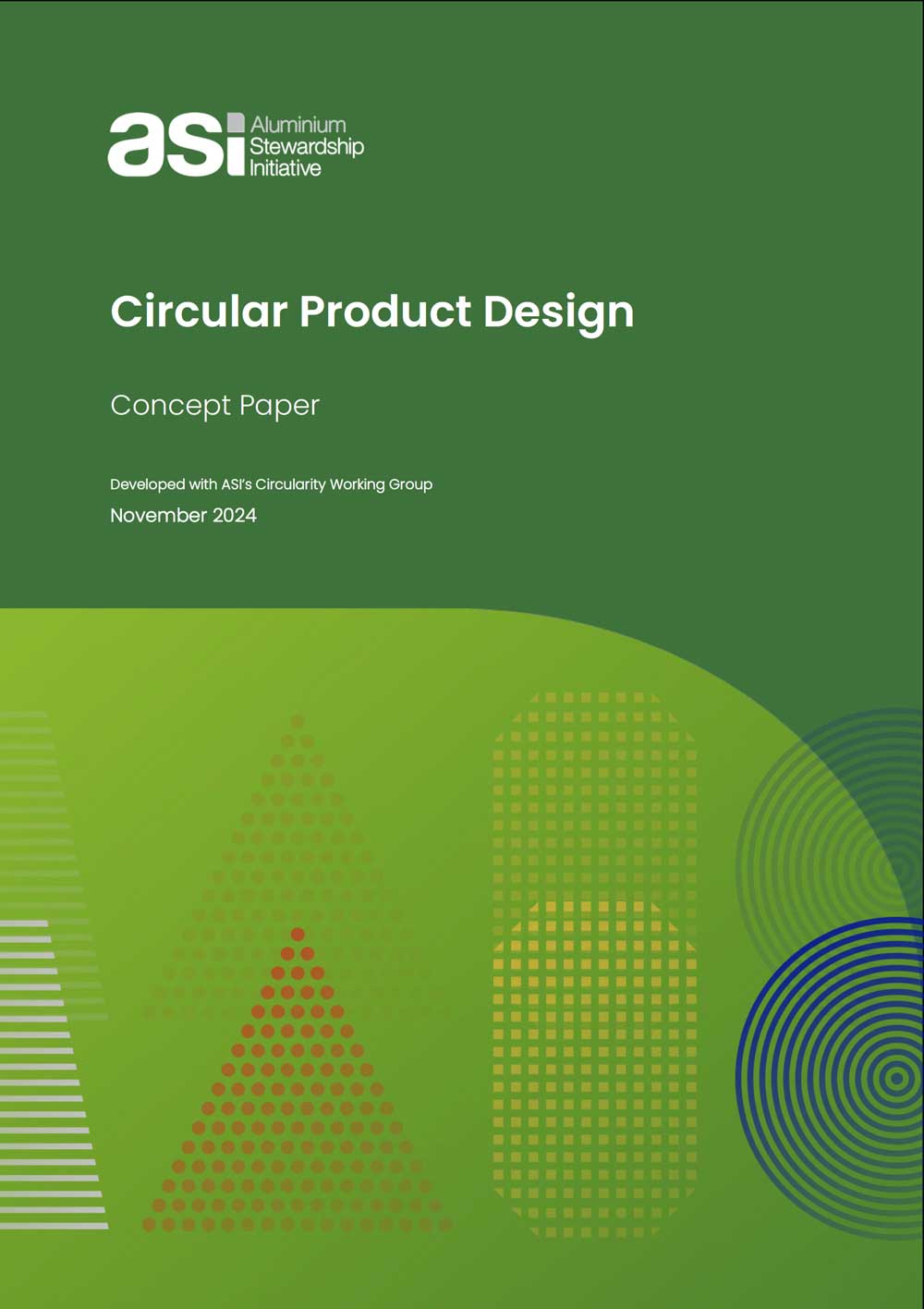
DOWNLOAD
Learning modules
1) Life Cycle Thinking and Assessment for the aluminium sector
This course for ASI Members introduces life cycle thinking and the practice of Life Cycle Assessment (LCA) for aluminium products and systems. It covers the evolution of LCA, ISO standard phases, study design, and analysis techniques, and concludes with ASI’s requirements under the Performance Standard. Participants gain the knowledge and tools to apply LCA effectively in support of sustainability and circularity.
Access the course on ASI’s learning platform
2) Circularity opportunities for the aluminium value chain: Introducing the ISO 59000 family of standards
This microlearning course introduces the ISO 59000 series on circular economy, highlighting why such standards are needed, what they cover, and how they can be applied in practice. With a focus on opportunities for the aluminium value chain, the course equips participants with essential knowledge to support sustainable and circular business practices.
Module 1 preview: The global need for circular economy standards
Explore why the shift from a linear to a circular economy is significant for the aluminium industry. [2 minutes]
Module 2 preview: Overview of the ISO 59000 family of standards
Understand the core standards, including their principles, business models, and performance metrics. [2 minutes]
Module 3 preview: ISO 59000 and opportunities for the aluminium value chain
Learn about ASI’s Circularity Framework and how to apply circular economy principles to aluminium operations, unlocking sustainability and business benefits. [2 minutes]
Webinars and Videos
Closing the Aluminium Loop: Insights from the 2025 Circularity Gap Report
A presentation by Gabriel Carmona Aparicio at the 2025 the 13th International Bauxite, Alumina and Aluminium Conference & Exhibition (IBAAS-IMMT-IIM 2025 [12 minutes]
Panorama del aluminio reciclado en Colombia
En este espacio se presentaron los resultados de un reciente estudio de CEMPRE y ASI sobre el mercado del aluminio reciclado en Colombia. [57 minutes]
Reclamation Potential of Aluminium in the Built Environment: Designing for Multi-Lifecycle Use
This talk introduces the concept of reclamation potential assessment—a new design tool that quantifies how design and specification decisions (including component interdependencies) impact resource efficiency across multiple lifecycles. [45 minutes]
45 minutes on Circularity Assessment: Enhancing Efficiency in the Circular Economy
Dive into the heart of the Circular Economy (CE) with us and discover how circularity metrics can boost its efficiency. [45 minutes]
Promoción de cadenas de suministro de materiales reciclados con abastecimiento responsable
Esta sesión explora formas de avanzar en el reciclaje de aluminio mediante el abastecimiento responsable, aprovechando conocimientos clave del Marco Armonizado de Abastecimiento Responsable para Plásticos Reciclados. [45 minutes]
45 Minutes on: How much sorting is required for a circular low carbon aluminium economy?
This webinar aims to explore the potential environmental advantages of bolstering sorting efforts, synthesising insights from operations research, prospective material flow analysis, and life cycle assessment. [45 minutes]
Fostering a low-carbon circular economy: Insights from two material flow accounting models
This webinar explores the potential for a low-carbon circular economy through the lens of material flow accounting (MFA) models applied to the aluminium cycle at different scales. [45 minutes]
Advancing Resource Efficiency and Circularity in the Aluminium Value Chain: ALUS’11 ASI presentation
This presentation by Gabriel Carmona Aparicio, ASI Circularity Research Manager takes a look at resource efficiency and the circular economy as transformative approaches to sustainability in the aluminium industry. [45 minutes]
:
Circularity Newsfeed
ASI and CARE Project partners launch the Living Income Study
The assessment offers insights into income levels, working conditions and the persistent gap between current earnings and the income required for a dignified standard of living.
Closing the Aluminium Loop: Insights from the 2025 Circularity Gap Report
Global circularity is declining, with only 6.9% of material inputs coming from recovered sources, according to the Circularity Gap Report 2025. For aluminium, trends in the Circularity Metric, Net Additions to Stock, and Waste Destined for Circularity show both progress and persistent gaps.
Strengthening Responsibility in Aluminium Recycling: CARE Project Workshop Highlights Market Dynamics and Due Diligence Challenges
The CARE (Collective Action for Recycling and Empowerment) Project recently held an interactive and insightful workshop focused on Due Diligence and Market Dynamics in Aluminium Scrap Value Chains.
SHARE THIS PAGE:

